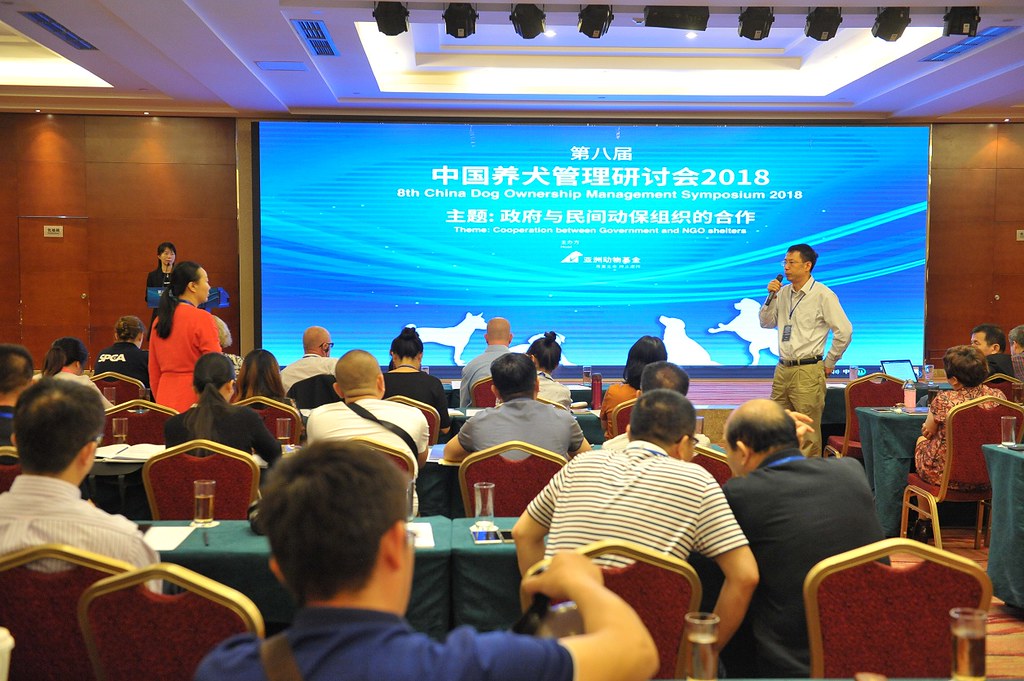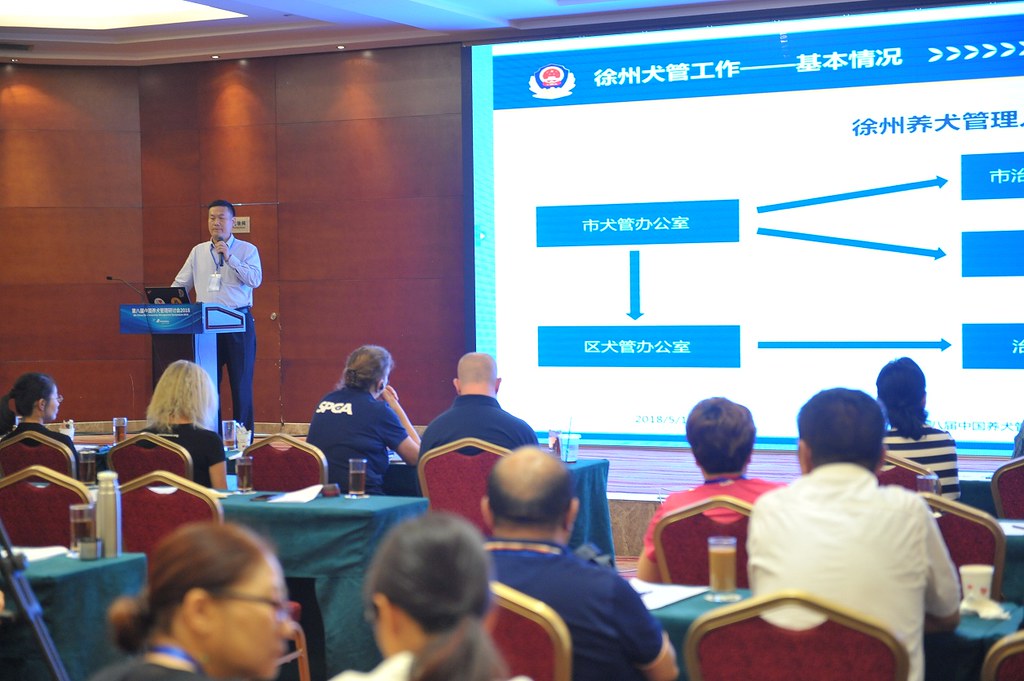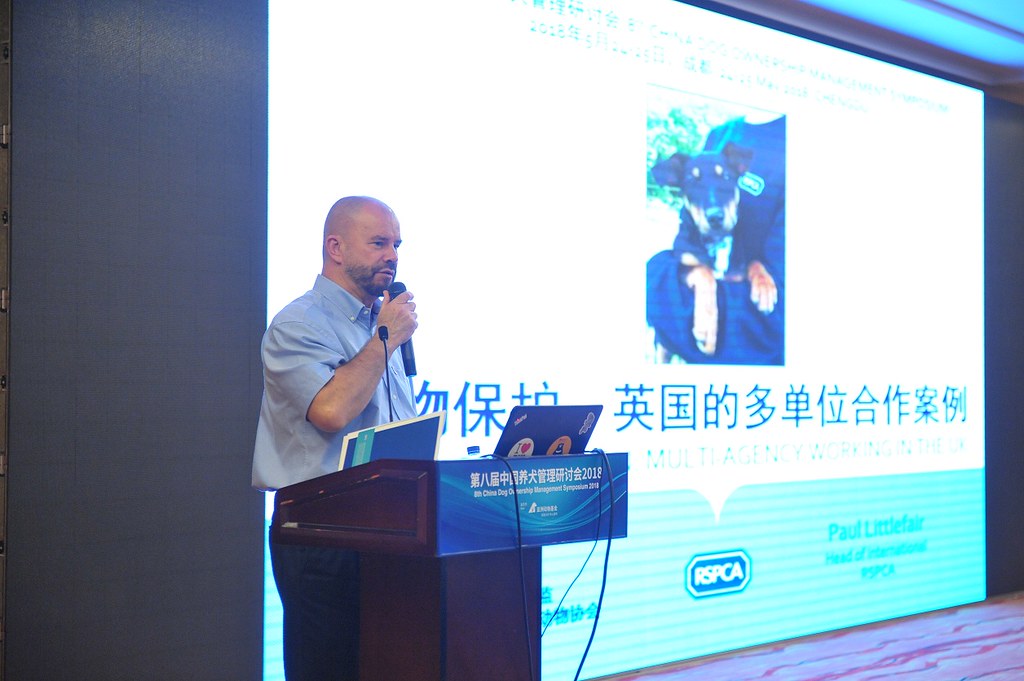Dog cruelty targeted as pop-up think-tank unites charities and government agencies across China
05 June 2018
Over 120 representatives met up to hammer out solutions to China’s increasing stray dog problem, which leads many to die in the meat trade.
While China’s increasing love for dogs and cats has seen the number of registered companion animals exceed 100 million, the new trend is not without problems.
As in countries all over the world, cat and dog breeders have sprung up in the hope of cashing in on the love of four-legged friends, with many operating irresponsibly.
Dreaded puppy mills in tandem with a lack of responsible ownership has resulted in increased numbers of urban strays – many of whom can end up victims of the cruel meat industry.
The number of strays is also a public health issue as China has been unable to eradicate rabies due to illegal transports of unvaccinated dogs for the meat trade.
Animals Asia’s Cat and Dog Welfare Director Irene Feng said:
“Many people in China continue to fear dogs, mindful that rabies is still a constant menace. With this in mind, there is enormous pressure on the authorities to control stray populations – yet many departments don’t have the capacity or expertise to do so humanely.
“That’s why we’ve brought government and local welfare groups together to share information on humane population control and to see how charities and the authorities can work together so that public safety doesn’t have to involve animal cruelty.”
Many cities and towns across China lack official animal shelters, or professional staff for animal control. But with the number of animal welfare groups mushrooming, the non-profit sector has a lot to offer their peers in government.
To facilitate networking and find solutions to these issues, Animals Asia held the 8th China Dog Ownership Symposium on 24 and 25 May in Chengdu.
Over 120 representatives from NGOs and government departments in 36 cities across China attended the two-day symposium.
Police officer Xie Delou of the Anshan Public Security Bureau said:
“The symposium has encouraged co-operation and communication between government and local groups, promoted responsible dog ownership among dog owners and reduced conflict between dog owners and non-dog owners.
“We need to catch stray dogs humanely, and educate dog owners to raise dogs responsibly.”
In January 2018, video of a golden retriever being beaten to death in the street by an auxiliary policeman shocked the world and highlighted the need for China’s authorities to be given help in their efforts to control strays and protect public health.
Police officer Deng Yong from Chongqing Public Security Bureau said:
“Through the symposium, I learned new and effective methods from brother cities to carry out our local dog ownership management work. We had opportunities to communicate with local groups and seek proper co-operation with each other.”
Alternative legislative perspectives on the issue of dog management were provided by participants from Macau.
Li Haitao of the Macau Municipal Council explained how under the animal protection laws of Macau, companion animal guardians are legally required to vaccinate their dogs annually, and animal abandonment is banned. Such laws help restrain rabies outbreaks and reduce stray populations, reducing dog management stresses on the authorities.
The first China Dog Ownership Symposium was held in 2009 and has gone on to be a pivotal platform for encouraging communication and co-operation between government and NGOs for the benefit of animals in China.
The conferences have helped spread the concepts of humane stray capture, shelter funding, fostering drives, neutering and regular vaccinations as well as raising awareness of responsible companion animal ownership education to reduce abandonment and conflict.
Animals Asia Founder and CEO, Jill Robinson MBE said:
“To improve the lives of dogs in China, you have to be constructive and you have to offer solutions. China has the will and the capacity to implement humane population control involving fostering drives and raising awareness of responsible companion animal ownership guidelines.
“Bringing all sides to the table to work together is what will prevent strays, abandoned animals and puppy mill cast-offs from ending up victims of the meat trade.
“This year, the attendance and presentations were the best yet. It has been amazing to see the authorities’ enthusiasm grow over the years, with many representatives keenly showing off their new dog management procedures.
“It is becoming a source of professional pride to be using new technology and gadgets to better deal with these issues and to be seen to be working creatively, collaboratively and intelligently with China’s burgeoning animal welfare groups in the field.”
Media reports suggest up to 10 million dogs are killed in China annually for the meat trade.
In 2016, proposed legislation to outlaw the dog meat industry received overwhelming support, with nearly nine million people voting for the proposal online, while an online poll in 2017 by China National Radio revealed 69% agree the dog and cat meat industries should be banned.
BACK








